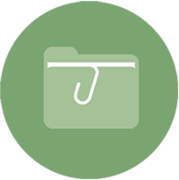Différences entre versions de « Overgeneralization of regular verb rules »
| (Une version intermédiaire par le même utilisateur non affichée) | |||
| Ligne 71 : | Ligne 71 : | ||
<!--AJOUTEZ (jusqu'à 100 lignes) OU SUPPRIMEZ LES LIGNES NON UTILISÉES ---------------> | <!--AJOUTEZ (jusqu'à 100 lignes) OU SUPPRIMEZ LES LIGNES NON UTILISÉES ---------------> | ||
<!--------- Commencez les modifications Typologie - Conceptions ----------------------> | <!--------- Commencez les modifications Typologie - Conceptions ----------------------> | ||
| − | |Conception-Type-1= | + | |Conception-Type-1= Simple past vs. present perfect |
| − | |Conception-Type-2= | + | |Conception-Type-2= Regular vs. irregular verbs |
| − | |Conception-Type-3= | + | |Conception-Type-3= Use of time expressions with past tense |
| − | |Conception-Type-4= | + | |Conception-Type-4= Pronunciation of "-ed" endings |
| − | |Conception-Type-5= | + | |Conception-Type-5= Difference between past simple and past continuous |
| − | |Conception-Type-6= | + | |Conception-Type-6= Forming questions in the past tense |
| − | |Conception-Type-7= | + | |Conception-Type-7= Use of "when" vs. "while" in past tense |
| − | |Conception-Type-8= | + | |Conception-Type-8= Non-specific time and the present perfect |
| − | |Conception-Type-9= | + | |Conception-Type-9= "Used to" vs. simple past |
| − | |Conception-Type-10= | + | |Conception-Type-10= Past tense with definite vs. indefinite time references |
}}<!-- ********************* FIN Fiche Typologie - Conceptions *********************--> | }}<!-- ********************* FIN Fiche Typologie - Conceptions *********************--> | ||
| Ligne 192 : | Ligne 192 : | ||
<!-- Complétez les pointillés ou Supprimez les lignes non utilisées--> | <!-- Complétez les pointillés ou Supprimez les lignes non utilisées--> | ||
<!-- ************ Commercez les modifications *********************--> | <!-- ************ Commercez les modifications *********************--> | ||
| + | *'''[[Question 1]]''': What is the difference between the simple past and the present perfect?* | ||
| + | Answer: The simple past refers to an action that was completed at a specific time in the past, while the present perfect connects past actions to the present, often without specifying the exact time. | ||
| − | * [[ | + | *'''[[Question 2]]''': When do we use "when" and when do we use "while" in past tense sentences?* |
| − | * | + | Answer: Use "when" to describe a specific point in time or an event interrupting another, and use "while" to show two actions happening simultaneously in the past. |
| − | |||
| + | *'''[[Question 3]]''': What is the rule for forming regular past tense verbs?* | ||
| + | Answer: For regular verbs, add "-ed" to the base form of the verb (e.g., *work* becomes *worked*). | ||
| + | |||
| + | *'''[[Question 4]]''': Can "simple past" and "past continuous" be used in the same sentence?* | ||
| + | Answer: Yes, they can be used together to show that one action was ongoing when another action interrupted it (e.g., *I was eating when she called*). | ||
| + | |||
| + | *'''[[Question 5]]''': How do you pronounce the "-ed" ending in past tense verbs?* | ||
| + | Answer: The "-ed" ending is pronounced in three ways: /t/ as in *walked*, /d/ as in *played*, and /ɪd/ as in *wanted*. | ||
| + | |||
| + | *'''[[Question 6]]''': Can we use the simple past tense with non-specific time expressions like "ever" or "never"?* | ||
| + | Answer: No, "ever" and "never" are typically used with present perfect, not simple past. | ||
| + | |||
| + | *'''[[Question 7]]''': How do we form questions in the simple past tense?* | ||
| + | Answer: Use "did" as the auxiliary verb, followed by the base form of the main verb (e.g., *Did you go to the party?*). | ||
| + | |||
| + | *'''[[Question 8]]''': Why is "I have gone to the store yesterday" incorrect?* | ||
| + | Answer: "Yesterday" is a specific time, so it should be used with the simple past tense: *I went to the store yesterday*. | ||
| + | |||
| + | *'''[[Question 9]]''': What is the difference between "used to" and the simple past?* | ||
| + | Answer: "Used to" describes past habits or states, while the simple past is used for specific actions that occurred at a particular time in the past. | ||
| + | |||
| + | *'''[[Question 10]]''': Can irregular verbs be formed by adding "-ed" to the base verb?* | ||
| + | Answer: No, irregular verbs do not follow the regular "-ed" rule (e.g., *go* becomes *went*, not *goed*). | ||
}}<!-- ******** Fin Fiche Didactique Questions ******************* --> | }}<!-- ******** Fin Fiche Didactique Questions ******************* --> | ||
Version actuelle datée du 11 décembre 2024 à 19:49
 Conception : Clarification - Explicitation
Conception : Clarification - Explicitation
Explication: Learners often struggle with understanding time markers like *yesterday* or *last week*. Misinterpreting these markers can lead to confusion about when an action occurred, which is critical for understanding and using the **simple past** correctly.
Comparaison: Compared to present tense markers like *today* or *now*, which are direct and straightforward, past time markers require learners to consider specific time frames, which adds an extra cognitive step.
Explication: Students may incorrectly apply the regular "-ed" rule to irregular verbs (e.g., *goed* instead of *went*). This error arises from their assumption that all verbs follow the same pattern.
Comparaison: Irregular verb conjugation in English contrasts with languages that have more consistent rules for past forms, making it a unique challenge for ESL learners.
Explication: Students often mix up these tenses due to their similar functions. For example, *I visited Paris* vs. *I have visited Paris*. The former emphasizes a completed action at a specific time, while the latter emphasizes experience.
Comparaison: Unlike the simple past, which is used universally, the present perfect has specific rules and contextual applications that vary across languages, contributing to this confusion.
Explication: A common mistake is omitting the auxiliary *did* (e.g., *She didn’t worked* or *Did she worked?*). This error stems from students misunderstanding the role of auxiliaries in marking tense.
Comparaison: Unlike affirmative sentences where the verb alone indicates tense, negative and interrogative structures in English rely on auxiliaries, adding complexity for learners.
Explication: The three different pronunciations of "-ed" endings (/t/, /d/, /ɪd/) can be challenging for learners, leading to inconsistent or incorrect speech.
Comparaison: This issue is particularly difficult for learners whose native languages do not have similar sound distinctions or phonetic rules for past tense markers.
![]() Conceptions erronées et origines possibles
Conceptions erronées et origines possibles
Explication: The tendency to overgeneralize the regular "-ed" ending for all verbs often stems from a lack of exposure to irregular verbs and an over-reliance on perceived patterns. Learners attempt to simplify the complexity of English grammar by applying one rule universally.
Explication: When learners directly translate from their native language, they may create structures that are grammatically incorrect in English. For example, a learner whose first language does not use auxiliaries for questions or negatives may omit *did* in sentences like *She not worked*.
Explication: Variations in how the simple past is taught can confuse students. For instance, focusing too much on rules without practical application may result in rote memorization rather than understanding, leading to errors in real-world usage.
Explication: Students often struggle with identifying time markers or contextual clues due to limited exposure to real-life examples or practice. This can lead to misinterpretation of when to use the simple past versus other tenses.
Explication: The irregular pronunciation of "-ed" endings is challenging for learners whose native languages lack similar phonetic variations. This difficulty may lead to avoidance or mispronunciation of verbs in the past tense.
Explication: Without a clear explanation of how the simple past differs from tenses like the present perfect, learners may use the two interchangeably. This confusion arises from inadequate teaching of their distinct functions and contexts.
Explication: Learners who rely solely on textbook examples may not encounter the diverse ways the simple past is used in natural speech, leading to gaps in understanding and application.
 Conceptions liées - Typologie
Conceptions liées - Typologie
Simple past vs. present perfect / Regular vs. irregular verbs / Use of time expressions with past tense / Pronunciation of "-ed" endings / Difference between past simple and past continuous / Forming questions in the past tense / Use of "when" vs. "while" in past tense / Non-specific time and the present perfect / "Used to" vs. simple past / Past tense with definite vs. indefinite time references /
 Concepts ou notions associés
Concepts ou notions associés
| Références
| |||
|---|---|---|---|
|
Sur le Portail Questions / Réponses |
Sur Portail de Formation Gratuite |
Sur des sites de Formation |
Sur DidaQuest |
| Overgeneralization of regular verb rules sur : Wikipedia / Wikiwand / Universalis / Larousse encyclopédie / Khan Académie | |||
| Sur Wikiwand : | |||
| Sur Wikipédia : | |||
| Sur Wikiversity : | |||
| Sur Universalis : | |||
| Sur Khan Académie : | |||
 Éléments graphique
Éléments graphique
- AUTRES MEDIAS
![]() Overgeneralization of regular verb rules (Discipline)
Overgeneralization of regular verb rules (Discipline)
![]() Overgeneralization of regular verb rules: (Discipline)
Overgeneralization of regular verb rules: (Discipline)
![]() Overgeneralization of regular verb rules: (Discipline)
Overgeneralization of regular verb rules: (Discipline)
![]() Overgeneralization of regular verb rules: (Discipline)
Overgeneralization of regular verb rules: (Discipline)
![]() Overgeneralization of regular verb rules: (Discipline)
Overgeneralization of regular verb rules: (Discipline)
![]() Overgeneralization of regular verb rules
Overgeneralization of regular verb rules
![]() Overgeneralization of regular verb rules
Overgeneralization of regular verb rules
![]() Représentation graphique spatiale Overgeneralization of regular verb rules: carte conceptuelle (cmap)
Représentation graphique spatiale Overgeneralization of regular verb rules: carte conceptuelle (cmap)
![]() Document PDF Overgeneralization of regular verb rules: Document PDF
Document PDF Overgeneralization of regular verb rules: Document PDF
![]() Image/Figure Overgeneralization of regular verb rules: Titre de l'image ou de la figure
Image/Figure Overgeneralization of regular verb rules: Titre de l'image ou de la figure
 Stratégie de changement conceptuel
Stratégie de changement conceptuel
- Strategy: **Use Visual Timelines for Time Markers**
Explanation: A visual timeline can help learners understand the placement of events in time and when to use simple past tense. By showing a timeline with markers such as *yesterday*, *last week*, and specific dates, students can clearly see the past reference point for their actions. Example: Present a timeline where "I went to the park" is placed under the marker *yesterday*. This visual tool will help students associate the action with a past time and understand its context in the sentence.
- Strategy: **Contrastive Analysis for Simple Past vs. Present Perfect**
Explanation: A key challenge is differentiating between the simple past and present perfect tenses. Provide students with side-by-side comparisons using specific time markers for simple past and unspecified time for present perfect. Example: Compare sentences like *I ate lunch at 12 PM* (simple past, specific time) and *I have eaten lunch* (present perfect, unspecified time). Highlight that the present perfect is used for experiences or actions with relevance to the present moment, while simple past is used for actions completed in the past.
- Strategy: **Pronunciation Practice for -ed Endings**
Explanation: Phonetic exercises focusing on the three sounds of "-ed" endings (/t/, /d/, /ɪd/) can reduce pronunciation errors. Provide drills and minimal pairs to practice the sound distinctions. Example: Have students repeat words like *played* (/d/), *walked* (/t/), and *wanted* (/ɪd/) to practice the correct pronunciation. Focus on physical articulation and provide feedback on mistakes.
- Strategy: **Interactive Verb Lists for Irregular Verbs**
Explanation: A list of irregular verbs with their past forms can be useful, but interactive tools like flashcards or quiz apps can make learning more engaging. Include both regular and irregular verbs in the same exercise to reinforce differences. Example: Use an app or printable flashcards where students match the base verb with its past form. Include verbs like *go/went* and *run/ran*, prompting students to recall the correct forms actively.
- Strategy: **Focus on Contextual Use of When and While**
Explanation: The words *when* and *while* are often misused. Teaching students the difference between these two conjunctions with context can help them understand when to use each. Example: Use examples like *I was watching TV when he called* (specific moment) and *I was watching TV while he was calling* (ongoing action in parallel). Explain that *when* refers to a single moment in time, while *while* is used for overlapping actions.
- Strategy: **Use Real-Life Context for Teaching Past Tense**
Explanation: By incorporating real-world examples, students can better relate to the past tense. Asking them to describe their previous day or talk about past events helps to contextualize their learning. Example: Ask students, *What did you do last weekend?* and encourage them to use complete sentences in the simple past. This helps connect the grammar rule to real-life experiences.
 Questions possibles
Questions possibles
- Question 1: What is the difference between the simple past and the present perfect?*
Answer: The simple past refers to an action that was completed at a specific time in the past, while the present perfect connects past actions to the present, often without specifying the exact time.
- Question 2: When do we use "when" and when do we use "while" in past tense sentences?*
Answer: Use "when" to describe a specific point in time or an event interrupting another, and use "while" to show two actions happening simultaneously in the past.
- Question 3: What is the rule for forming regular past tense verbs?*
Answer: For regular verbs, add "-ed" to the base form of the verb (e.g., *work* becomes *worked*).
- Question 4: Can "simple past" and "past continuous" be used in the same sentence?*
Answer: Yes, they can be used together to show that one action was ongoing when another action interrupted it (e.g., *I was eating when she called*).
- Question 5: How do you pronounce the "-ed" ending in past tense verbs?*
Answer: The "-ed" ending is pronounced in three ways: /t/ as in *walked*, /d/ as in *played*, and /ɪd/ as in *wanted*.
- Question 6: Can we use the simple past tense with non-specific time expressions like "ever" or "never"?*
Answer: No, "ever" and "never" are typically used with present perfect, not simple past.
- Question 7: How do we form questions in the simple past tense?*
Answer: Use "did" as the auxiliary verb, followed by the base form of the main verb (e.g., *Did you go to the party?*).
- Question 8: Why is "I have gone to the store yesterday" incorrect?*
Answer: "Yesterday" is a specific time, so it should be used with the simple past tense: *I went to the store yesterday*.
- Question 9: What is the difference between "used to" and the simple past?*
Answer: "Used to" describes past habits or states, while the simple past is used for specific actions that occurred at a particular time in the past.
- Question 10: Can irregular verbs be formed by adding "-ed" to the base verb?*
Answer: No, irregular verbs do not follow the regular "-ed" rule (e.g., *go* becomes *went*, not *goed*).
 Bibliographie
Bibliographie
Pour citer cette page: (of regular verb rules)
ABROUGUI, M & al, 2024. Overgeneralization of regular verb rules. In Didaquest [en ligne]. <http:www.didaquest.org/wiki/Overgeneralization_of_regular_verb_rules>, consulté le 18, décembre, 2024
- ..................
- ..................
- ..................
- ..................
- Sponsors Question
- Simple past vs. present perfect - Conceptions
- Regular vs. irregular verbs - Conceptions
- Use of time expressions with past tense - Conceptions
- Pronunciation of "-ed" endings - Conceptions
- Difference between past simple and past continuous - Conceptions
- Forming questions in the past tense - Conceptions
- Use of "when" vs. "while" in past tense - Conceptions
- Non-specific time and the present perfect - Conceptions
- "Used to" vs. simple past - Conceptions
- Past tense with definite vs. indefinite time references - Conceptions
- Conceptions
- Manque paramètre « contenu » dans modèle « Emphase »
- Manque paramètre « contenu » dans modèle « Fikif-Cadre »
- Fiches Conceptions
- Fiche Conceptions





